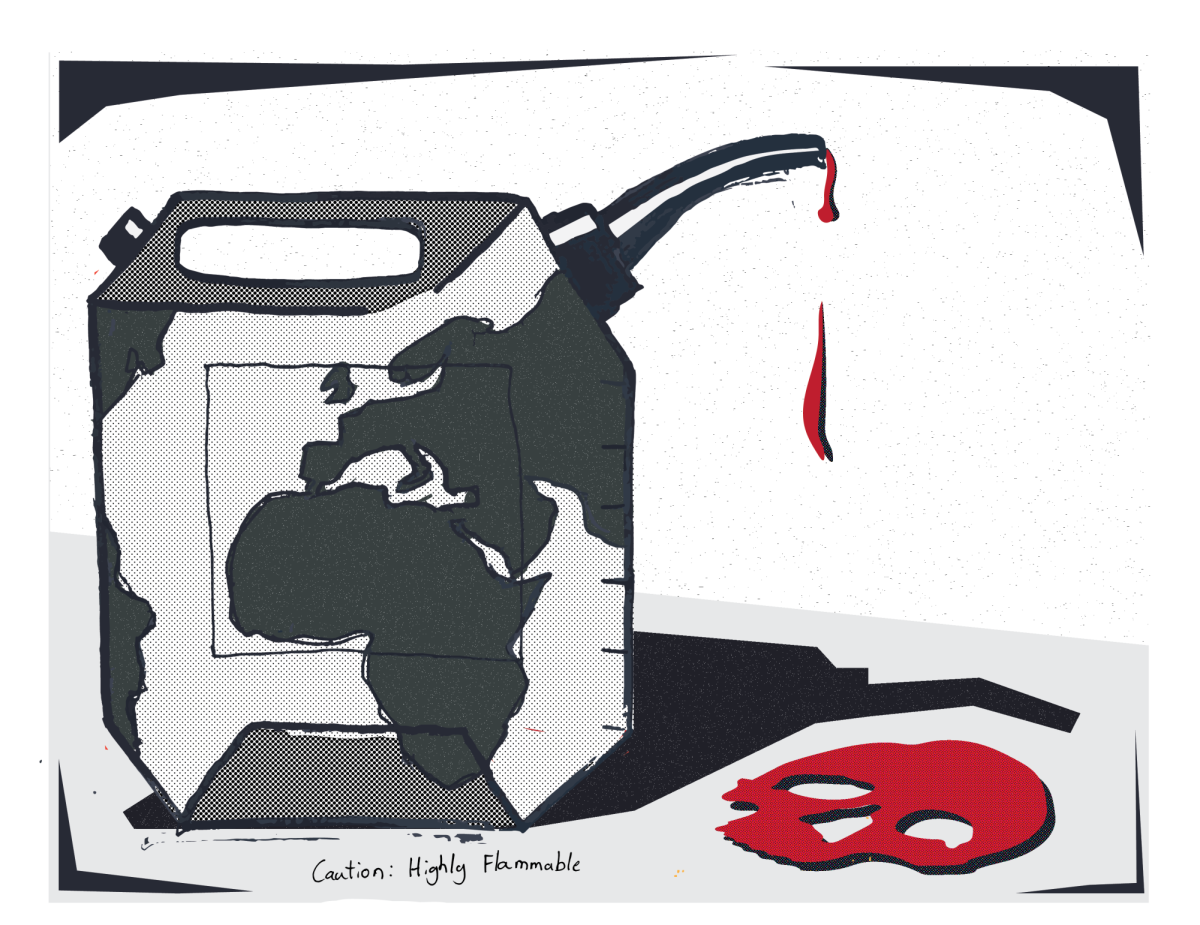During last month’s GOP debate, Vivek Ramaswamy called the climate crisis a hoax and pledged his fealty to fossil fuels as a source of energy. Ignoring the false reality of climate crisis denialists, American politics maintain and normalize his stance on energy.
This policy is extremely irresponsible, given the inevitable demise of fossil fuels. They’re a non-renewable resource that will run out in a handful of decades. We need to transition as soon as possible to avoid an energy crisis and save the fuels we have for a later date.
Inevitable Time Limits on Fossil Fuels
The exact timeline for depleting our available fossil fuel reserves isn’t entirely clear. Some sources say with our current rate of consumption we wouldn’t run out until nearly the next century, while others say we have until 2060.
The exact year, month and day are irrelevant to the conversation. At some point, they’ll run out — it’s not about if, but when. This is a particularly relevant problem for Utah since we get the vast majority of our energy via fossil fuels. We’ve made an effort to transition to renewables, but nowhere close to enough of one.
Energy enables our modern way of life — a significant portion goes to heating and climate control. An energy crisis means increases in the cost of transportation and food, and it directly links to poverty. The negative effects of one of these crises can last forever, which is why our reliance on these fuels is such an issue. A quick solution is absolutely necessary.
Utah’s Political Stance
Ramaswamy’s harmful stance is becoming the norm for conservatives nationally. Unfortunately, the same is true for Utah politics, as several local politicians have echoed his position — including Rep. Trevor Lee, R-Layton.
“We need to do a lot more drilling and fracking,” Lee said in a recent interview with the Chronicle. “… We need more coal, which we have an abundance of, we need more oil, we have an abundance of that as well.”
Our politicians aren’t entirely opposed to the idea of transitioning to better forms of energy.
“I’d like to see [energy production] all nuclear energy here in Utah … there has been a big push at the federal level to do some carbon capture and other means that are considered clean energy and I’m fine for it,” Lee said in response to alternative methods.
Lee added, “I think it’s a matter of just letting the free market work and not letting the government suppress or regulate the industry too much.”
In the minds of our politicians, this problem will resolve itself. The issue with his stance on renewables isn’t the stance itself, it’s the passiveness. His overwhelming support for the free market is grossly negligent. His job is specifically to push the industry toward solutions that will work better for Utah.
Our state is very energy-rich, with a variety of sources to choose from. Hydrogen energy is extremely promising, as we’ve seen based on massive investments from major players in recent years. Solar and geothermal energy are also feasible replacements. Our transition needs to be guided by experts and heavily regulated — the government must ensure energy companies aren’t operating in ways that hinder this transition. The free market should not guide solutions to this issue. An energy transition creates a conflict of interest for these energy companies. They won’t just sit idly by and let the market push them out of the industry.
This is a Fixable Problem
Fossil fuels can be a useful tool since they’re cheap, reliable and easy to set up. This, contrasted with the difficulties of employing renewable energy, makes fossil fuels uniquely appealing. This is something Rep. Lee is very aware of.
“If you’re California, you want to go all in on electric, renewable energy, wind and solar,” he said. “In 20 years, from when they started, they’re the ones that are having problems with having enough energy to power their grid system.”
Lee added he doesn’t think the answer is to subsidize things.
“It’s not proven, or if we know it’s going to cost more than just the traditional route of energy,” Lee said. He based his analysis on the unproven nature of renewables, but he isn’t in a position to make that call.
Renewables don’t have to be unreliable. Their reliability depends on the amount of investment in their use. We’re in a promising position with renewables, so continuing to rely on fossil fuels as our major source of energy shoots us in the foot. Furthermore, the reliability of fossil fuels is a major reason to conserve them for times when our renewable sources aren’t enough. The advantage of non-renewables is their ease of use — but that’s subverted by their limited and dirty nature. We must transition to something we can use forever.
We need to shift gears as soon as possible from our current policy to something that will last and that won’t cause a crisis down the road. Utah has the opportunity to grow into a major player in U.S. energy. But we stand to lose everything if we don’t do so in a responsible way.



